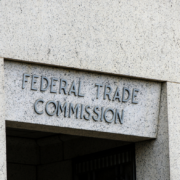Consumers and music lovers beware: My piano-moving scams saga
 By Sally Greenberg, Chief Executive Officer, National Consumers League
By Sally Greenberg, Chief Executive Officer, National Consumers League
The National Consumers League fights scams. We manage Fraud.org and James Perry on our staff is a world expert on scams.
I often tell the staff that the only recent scam I almost fell for was the piano moving scam.
Here’s how the scam works. Someone posts that their uncle, friend, brother, or parent has a beloved, very expensive, and fancy piano that needs a good home. It’s always a grand piano or baby grand piano, always “in excellent condition,” often “just tuned,” a valuable instrument, and in demand. It needs “a good home, someone who will love it like my relative/friend always has.” That person is “giving away the piano for free, all that is required to pay to have it moved.” A picture of the piano is often posted, and it is indeed a baby grand piano. A very authentic photo will often be included. The payment options are nonrefundable options. Another red flag.
Here’s a classic scam email:
Hope your day is going great. The ” Wurlitzer 200A Electric Piano” used to be owned and played by my husband who is now deceased and it was last tuned in November last year before he passed, I’m almost done moving my properties and I don’t think my husband will be happy if I was to sell his piano, at the same time I’m not happy seeing it around because of less storage I have in my new house, so I’m hoping to give it out to someone who is a passionate lover of the instrument.
The first lady I thought would get it didn’t show up as she promised, and I wasn’t going to leave it alone in an empty house. It’s currently going to be with the movers I employed to move my properties from my place, which they’ve moved for onward delivery, if you really don’t mind making new arrangements with the movers, I can attempt to get in touch with them to reroute it, this should not attract many charges. I’m sorry for the inconvenience but do let me know if you wish that I get through to the movers. Just so you know I’m not giving out a scrap or a waste. It’s in good shape and condition.
Regards,
John Doe
Family Piano has some great tips for recognizing the scam, including that no one gives a valuable piano away to strangers.
A few years ago, I got such an email and thought, “Oh boy, finally a great piano I can play and for free as long as I pay to have it moved!” So I called and was told that the owner would put me in touch with the movers. However, the piano was in Oklahoma. Hmmm, I thought this email came from someone in my synagogue, just down the street. I smelled something fishy, so I googled “piano scams,” and up popped hundreds of stories about people attempting to take advantage of a wonderful piano given away for free, paying moving costs to get it, and finding out the cost of moving the piano is the scam.
The Better Business Bureau has a whole site devoted to piano-moving scams here.
Here’s one example from the BBB site:
One consumer reported this experience after contacting the so-called moving company: “The customer service rep sent me a picture of packaged piano and asked me to pay the moving fee. They sent me an invoice for $843 and instructions on how to send the money through PayPal. They asked me to send them the receipt via email so they could prepare for the shipment. Three days later, they gave me a ‘trucking number.’ But on the morning the item should’ve been delivered, they sent me an email saying there was an unexpected payment owed on the piano and I would need to pay an additional $1,424… If not, they said they would return it to their warehouse.”
So, of course, that was the end of that. In fact, the offer I received exactly replicated many other consumers had received. I didn’t go through with the transaction, thankfully.
Then, just last week, someone named “George Hooper,” from “East Chevy Chase” posted this note on Nextdoor app:
“A friend of mine, who lives in McLean, VA, can’t take her piano with her. (George Steck – Paris, London, New York – baby grand piano. It was a practice piano at the Kennedy Center. In excellent condition.) She’s willing to give it away for free providing the recipient pays for moving the piano. Let me know if you want a pic of the instrument and the owner’s contact info, but please don’t respond to this extraordinarily good deal unless you are very serious about acquiring it.”
I hadn’t realized, though in my line of work I should have, that Nextdoor has become rife with scams and people are more trusting because they think everyone is a bona fide neighbor. Repair scams are especially prevalent on Nextdoor, such as described here on BuzzFeed.
And Nextdoor itself is posting this warning to users.
My immediate response to the offering was to warn users that this is a piano moving scam and not to fall for it. This George Hooper, whoever he is, became irate and said I had “poisoned” his benign email. He then listed the name of the woman with the piano and phone her number was a Northern Virginia area code. I called her and she confirmed she had the piano and I could come and look at it, but she would have to get me through security. Then I asked whether I could get my own movers and her response was, “Yes, well I have to get it tuned and I have a moving company that has moved it twice and it has legs so it’s complicated.”
It all sounded so believable, but I was still suspicious.
It occurred to me that if you’re giving away a piano for free and it is going to be moved, why would you get it tuned?
A few people said they wanted the piano and George said, “It’s gone. I’ll send a photo of the person who bought it who can play a concert for you once it has been delivered.” That’s the last we heard.
So I went online and read the thousands of piano moving scams, such as this story. The lengths they will go to!
This article points out all the red flags for piano moving scams. Be wary of them and be wary of people like “George Hooper”!



















